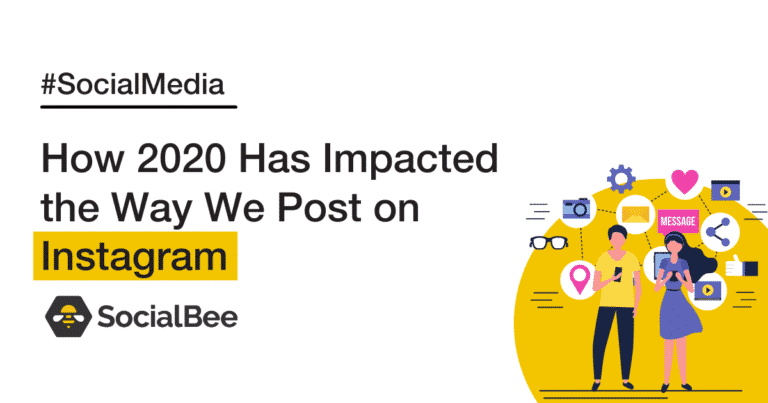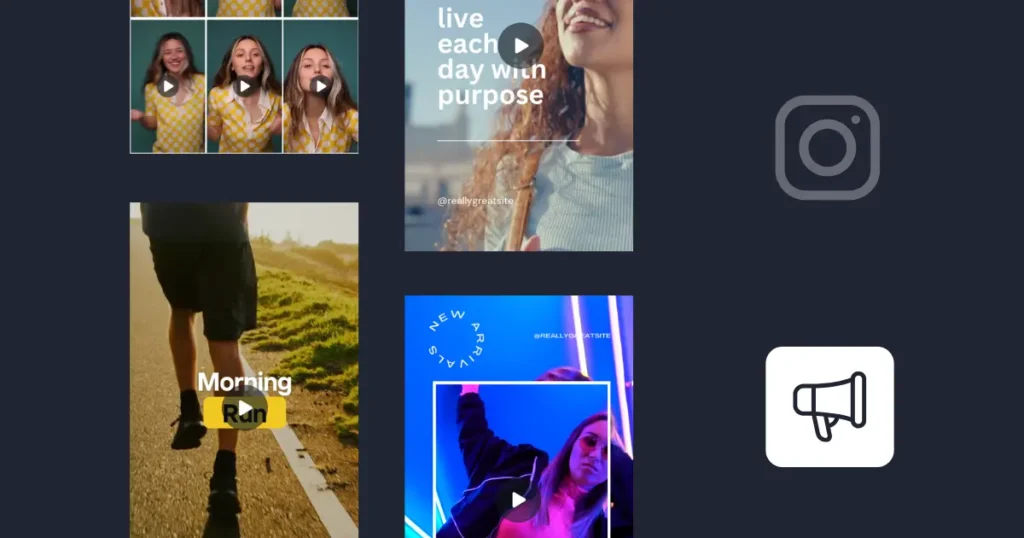A shift has begun and has been accelerated by the global pandemic, that is the shift from idyllic content to realistic content.
Audiences now more than ever crave authenticity from those they follow, if they can’t relate, the chances are they will find it hard to respect and value the content from the creator. Instagram influencers and users, in general, are beginning to commit to authentic depictions of their lives.
What’s new on Instagram? The photo-sharing platform has made huge strides since its inception a decade ago, and so have its users. Influencers have pioneered a whole new marketing industry out of the social media platform and checking out how they use it is a signpost for what bodes for the future.
In terms of audience, many of Instagram’s (and influencers’) trends started out with millennials—they still remain the largest demographic on the app—but users aged 18-24 comprise the second largest demographic and are impacting the Instagram landscape in unique ways.

Some of Instagram’s “tried-and-tested” rules don’t mesh with the younger generation. Users are increasingly understanding the stress and anxiety that constantly seeking the perfectly staged photo causes, and Instagram’s aesthetic is now moving away from that into a more honest, authentic, communicative image.
In an article on The Atlantic, various social media professionals share how Instagram’s ideal look has changed: longer captions, more transparency with money earned, less thought put into posts, and no more pressure to have a perfectly staged photo. Now, with the COVID-19 pandemic sweeping the world, this shift is more timely than ever—nobody wants to see others engaging in frivolous spending or luxurious getaways while many locales stay under quarantine.
So to stay relevant on the app, you need to go with this flow. We’ve outlined some of the most significant changes in the Instagram aesthetic you need to know to stay up to date.
1. Less pressure for perfection
In direct opposition to the highly polished Instagram aesthetic, many of us are familiar with, young influencers are increasingly putting less effort into the content they post. The more spontaneous-looking and in-the-moment the better, and with that many are choosing to post directly from their mobile phone’s camera roll with minimal (if at all) edits.
If there are edits to be had, many are often done with the intention to make the photo look either older or just slightly more accurate to real life. Adding grain, for example, is a popular choice. Achieving this look with filters and color editing is easy if you have the right photo editing software. Although, there’s no harm in being a little technical and choosing the right image size for your posts, either for your feed or Stories.
While you still must plan out more professional-looking photo sets for products or cross-channel marketing materials, give yourself some leeway when planning social media posts.
This goes for Instagram captions as well. Users no longer feel the need to be so formal when they write out their captions, and there’s less concern over length and more about whether someone has something to express.
2. Inward comfort over public persona
The generational differences between millennials and Gen Z and how they approach the Instagram aesthetic extend further than color filters and portrait posing. Blogger Venkatash Rao, terms the new approach “domestic cozy,” and theorizes it developed due to the youth growing up in an unstable, often frightening time—one of climate change and economic anxiety.
Rather than the idea of going out and capturing the most “Instagrammable” shot in a high-traffic, popular area, that might be expressed in more and more photos and captions about:
- Staying in
- Hanging out with close friends and family
- Unfiltered thoughts
- Catching up on a good book
- Devoting oneself to hobbies.
- Doing chores.
This isn’t just a trend for Gen Z. Users of all ages are following suit. For brands aiming to transition into this mood for their feed, start by highlighting everyday moments—the closer to home, the better.
Showcase employees going about their day at work or share live updates on the events you’re involved in and the preparation that goes into them. Alongside the current pandemic comes a keener awareness of how brands treat their employees, especially frontline and essential workers. Forge a connection with users partial to this type of content by emphasizing the communities built around your brand.
3. Authenticity reigns
Generation Z is in a constant search for truth, and they’ve learned to look past and be sceptical of the first impression they see on the internet. According to a study by the McKinsey Global Institute, a key characteristic of Gen Z consumers is that they value individual expression and value so highly that they make decisions about the brands they support in an analytical, pragmatic way.
The study found they’re eager for more personalization in services but are also more likely to support brands that highlight their individuality.
How does this connect to Instagram? It all ties into their high regard for brand authenticity. A brand needs to have its mission, vision, and core values aligned with its products and activities to be attractive to Instagram’s newest trendsetters. What better way to highlight this than with user-generated content?
According to the Global Trust in Advertising report, incorporating social-proof via user-generated content is a powerful tool as 92% of people trust personal recommendations than those provided by brands. Share experiences with your brand from three different user-generated content sources: your customers, your employees, and influencers. This gives you a good mix of photos and shows you and your brand from different perspectives. Use a photo editing app like Instasize to tweak them a little before reposting if you like by adding text and borders.
The bottom line is to engage and share from people who truly exhibit how you want to be presented—or others will know. That’s why one-off influencer marketing campaigns won’t work as well as they used to: promote longer brand ambassador partnerships instead.
4. Represent diversity
Look at the data behind Instagram’s demographics and you’ll see a wider variety of users than you might think. While the United States still leads the user count, countries such as India, Brazil, Indonesia, and Turkey are in the top five, with more than 30 million users each.
Instagram’s users are more conscious than ever about diversity and representation, and they aren’t afraid to call brands out for missteps.
One industry this has been keenly felt is in the beauty and cosmetics industry. More and more people are willing to spend on beauty brands, regardless of age, gender, or race, and consumers are more vocal about having themselves represented in product lines and marketing. The industry has adjusted—and so has their social media marketing and Instagram content.
For outlets like Sephora targeting a huge demographic, it’s important everyone is represented in their social media posts, lest they accidentally alienate loyal customers. Other personal brands are built entirely around this philosophy, such as Rihanna’s famous Fenty Beauty, which emphasizes a wide product range built to cater to every potential customer.
Brands such as Dove and Love Beauty Planet make sure that the voice and influence of their customer base is amplified through the licensing and republishing of user-generated content.
What to do with this knowledge?
Will you need to change your entire social media strategy? Not necessarily. There’s no need to discard the planned content you already have to make money using Instagram. Many highly polished photos still abound on Instagram, and there’s always a place for planned visual content—whether it be for website visuals or newsletters. Plus, checking the demographics of your audience and your previous social media reports already gives you a picture about what’s currently working with your Instagram strategy.
Not every shift in the Instagram aesthetic applies to every industry, either. You’re less likely to see mobile phone photos and casual conversation from accounts dedicated to technical areas like manufacturing, for example.
But Instagram is always changing according to what users prefer, and while you won’t need to switch your plans on their head immediately it’s good to know where the platform is heading towards. In these uncertain times, you also need to realign your strategy to match. Keep a close eye on your industry, take note of what Instagram’s most popular users are doing, and plan for opportunities when you get them.
Neal Schaffer is an authority on helping innovative businesses digitally transform their sales and marketing. Founder of the digital marketing consultancy PDCA Social, Neal is currently a Fractional CMO for several companies and also teaches executives digital marketing at Rutgers Business School and the Irish Management Institute. He is also the author of four sales and marketing books, including Maximize Your Social (Wiley) and the recently published The Age of Influence (HarperCollins Leadership), a ground-breaking book redefining digital influence. Download a free preview of the Age of Influencer here.

















